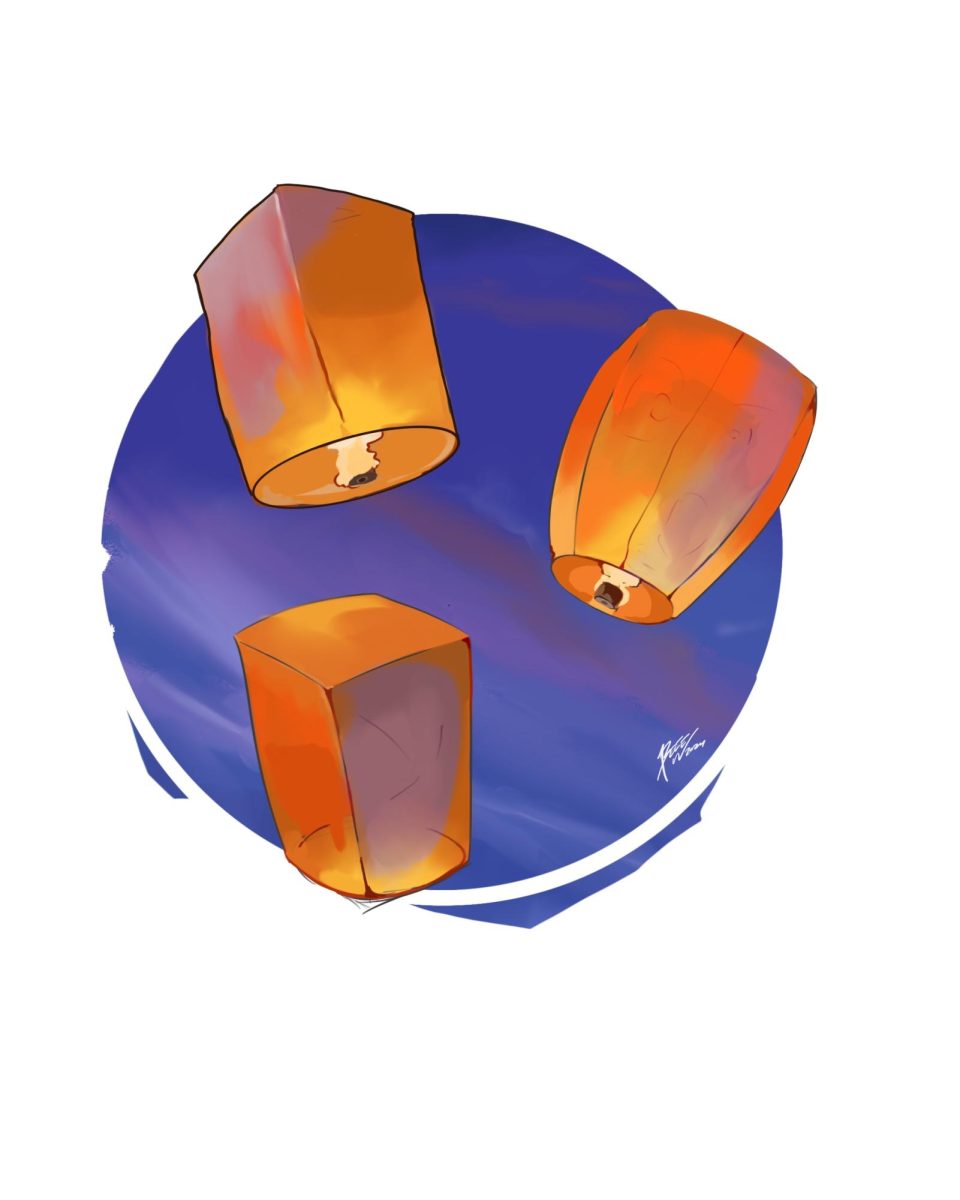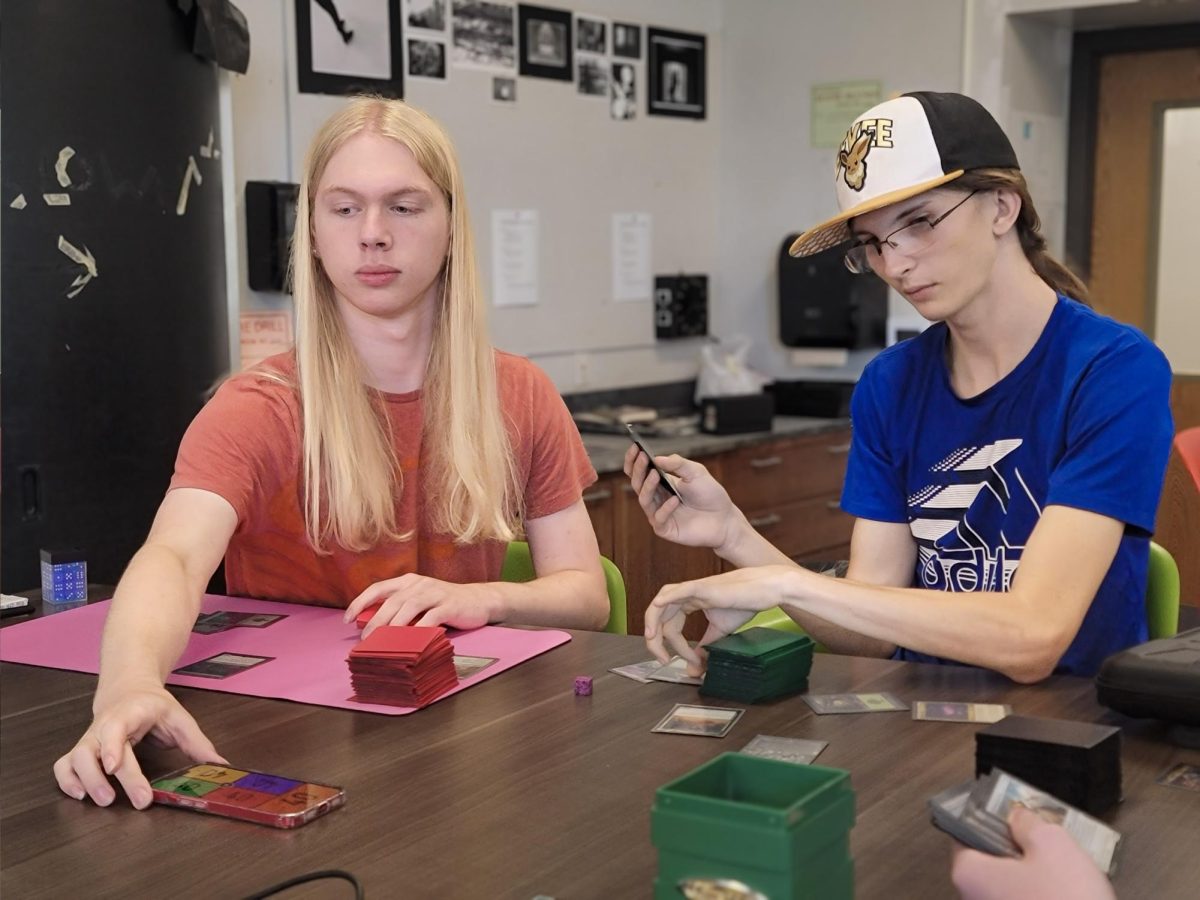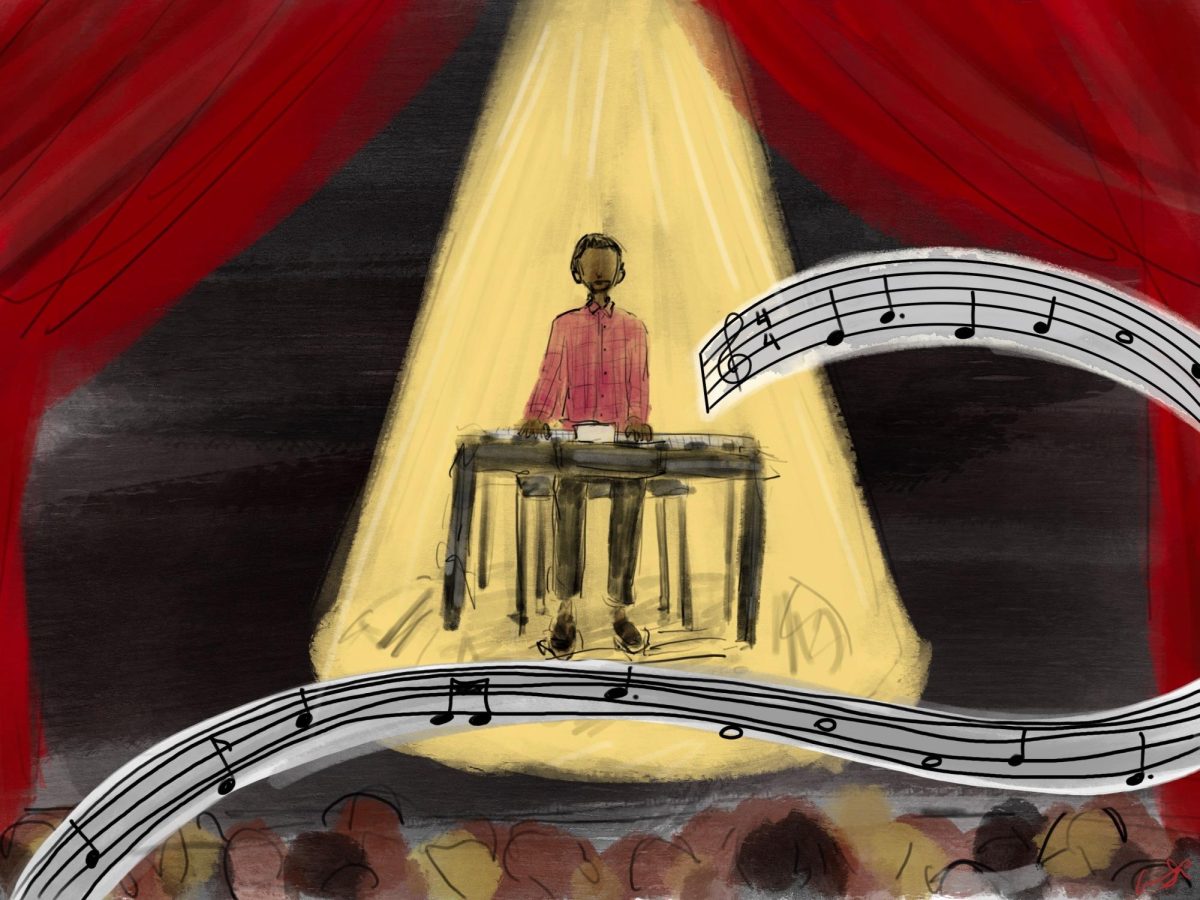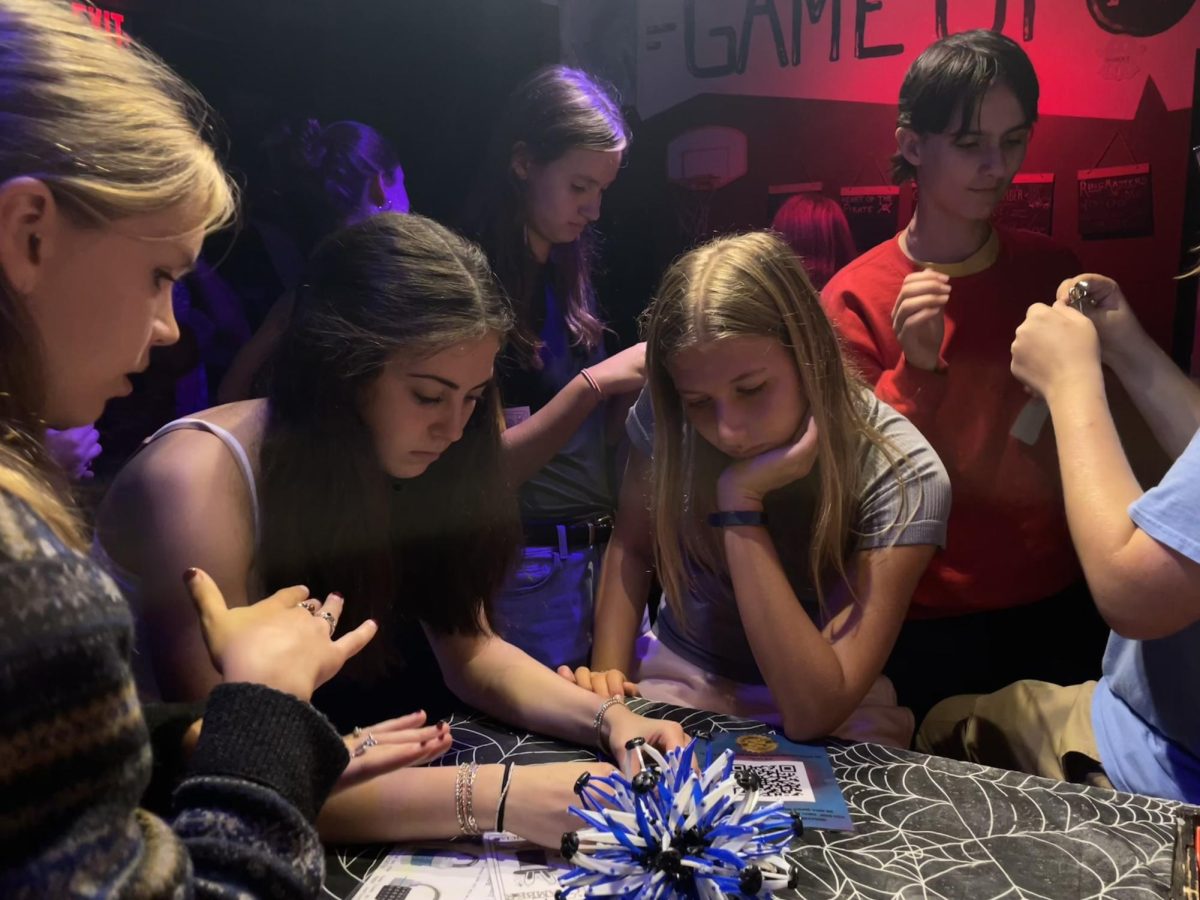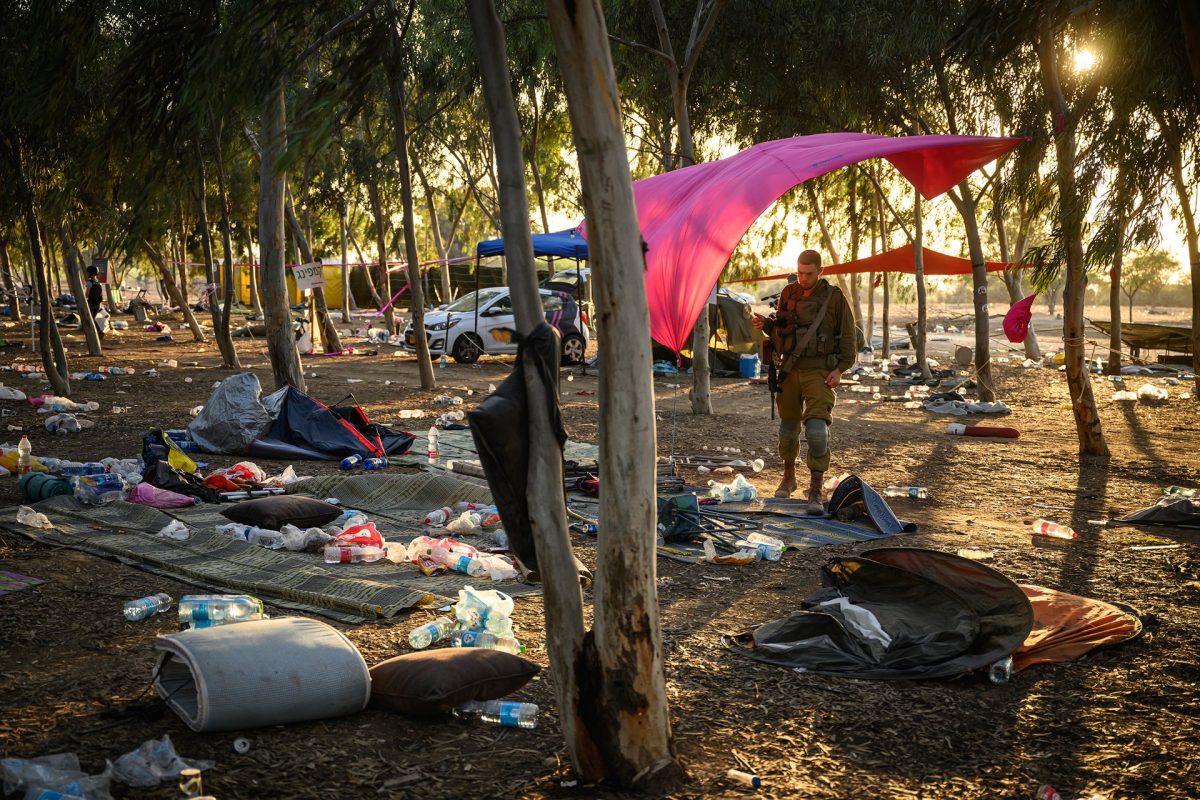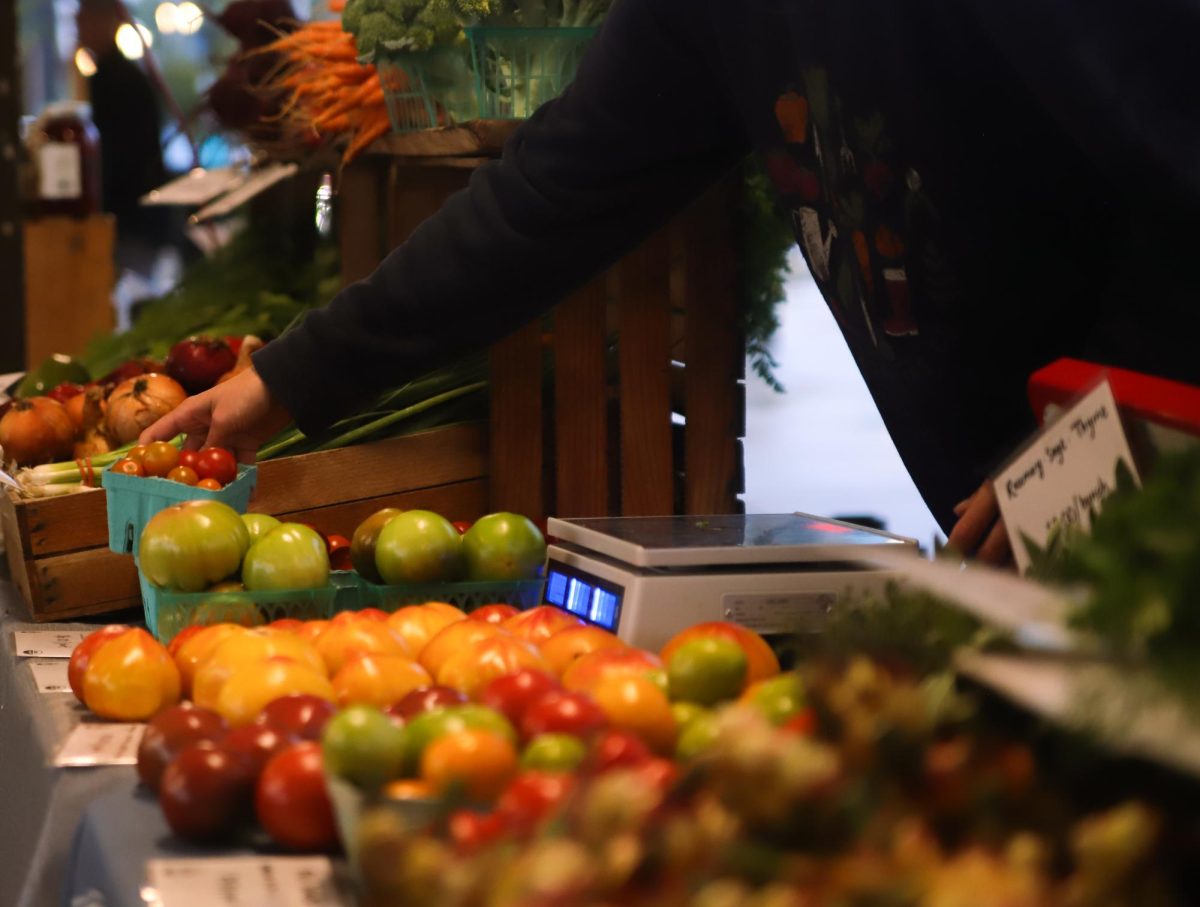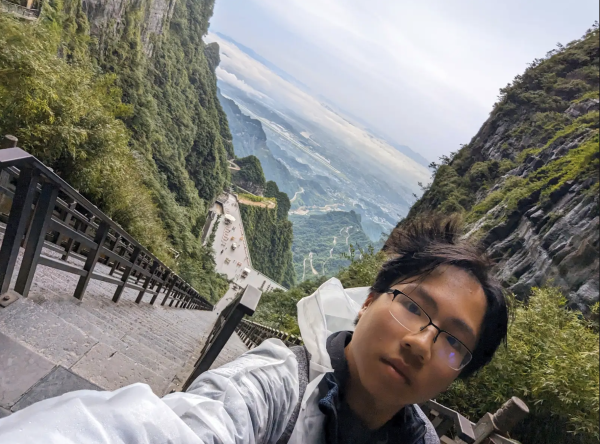Every year, millions of people across the world celebrate the coming of a new lunar calendar. Looking out the window, you can see people dancing and boisterous food vendors along the streets, loud firecrackers on the streets coupled with the bright orange glow from lanterns. The Spring Festival is one of the most renowned celebrations in the world, known for welcoming in good spirits and luck for the upcoming year.
At CHS, the Asian teacher and student body make up a small minority, and to many of them, the start of a new year is a time for them to connect not just with their families, but also their culture.
“I think it’s important that, when we come to a new place where our traditions aren’t much celebrated, we have a way for us to express our identities in a very family-centered way,” said Luciana Qu, math teacher and forum leader. “Especially with the diaspora of Asian Americans, Chinese Americans, being able to have the opportunity, and creating the opportunity yourself to just celebrate the things that you celebrated growing up is important.”
The origins of the Lunar New Year are not clear; some believe that it originated in the Shang Dynasty (1600-1046 BC) around 3,500 years ago when people held sacrificial ceremonies in honor of gods and ancestors at the beginning of the year. Another popular legend is about the mythical beast Nian (year in Mandarin) who ate crops, livestock and even people during the new year. It is said that a wise man found out that the Nian hated loud noises and the color red: the reason why there are firecrackers and lanterns everywhere during the modern-day festival.
In the Chinese Zodiac, each year is linked to one of 12 creatures, with the zodiac repeating every 12 years. It’s similar to the Western astrological signs but changes each year rather than each month. This year, it’s the year of the dragon. In the zodiac, the dragon, as the only mythological creature, is revered as a symbol of power and is also thought to be the most auspicious. To many, it’s also the best year to give birth, as children born in the dragon years, recently including 2012, 2000, 1988 and 1976, are said to be born leaders, energetic, determined and powerful with a strong sense of self.
Traditions are different for each family and culture. For example, in Korea they have the entire family gather in traditional clothes and perform a deep bow to elders, signifying respect. In China, each region has its own distinct foods to make and eat ranging from dumplings to rice cakes. A very popular and well-known tradition is receiving red envelopes full of money from your elders, symbolizing good luck and prosperity.
Today, the Lunar New Year is a time to spend with family, catch up with old friends, give and receive gifts and take a break from work and school.
Joslyn Hunscher-Young
For Joslyn Hunscher-Young, the Lunar New Year has been a time to connect with her heritage.
“Being Chinese-American is an important part of who I am. I think that having that connection to my heritage and my family and life is very important for me,” Hunscher-Young said. “In some ways, it has become more important since my dad passed away. I lost that direct connection, and a lot of Chinese New Year is also about remembering ancestors and people that have come before you, which is why it’s so important.”
Growing up, Hunscher-Young’s parents decided not to send her to a Chinese school. While in college, she met one of her best friends who is also mixed Chinese and white, who was able to speak Mandarin. Not having been pressured to learn the language by her parents, she felt a little excluded
“I did feel a little bit left out because I didn’t have some of those same experiences as a lot of people do, as many Asian immigrant families have. I didn’t have those. But I think as I’ve grown up, I’ve just recognized that everyone’s experience is theirs and unique,” Hunscher-Young said. “And no one, at least in my face, has ever been like, you don’t belong here. You’re not enough to be a part of this.”
In college, Hunscher-Young once went to Chinatown for a Lunar New Year celebration. During this time, she got to experience the many customs that go on, such as the Lion Dance and the loud firecrackers, which helped her connect with her community and feel at home.
Now, Hunscher-Young celebrates the Lunar New Year with her family by making a variety of dumplings with different shapes and fillings and eating foods such as long noodles and fish together.
“Long noodles are one of my favorites. And my kids like them now too,” Hunscher-Young said. “I remember that my dad would emphasize that you can’t bite them, you have to slurp the whole thing so that you don’t break the noodles, so [my kids] like slurping up noodles. So I think that’s part of it, plus they’re delicious.”
Hunscher-Young has many hopes and goals for the coming year. Being born in the year of the dragon, she’s hoping that this year will allow her to have the space to bring the energy to do many more fun and exciting things with the community, both professionally and personally. Along with that, she hopes to be able to clean her house more in order to get the new year off to an organized start.
Anthony Wang
For Anthony Wang, the Lunar New Year is about spending time with his family.
Coming from China, Wang was used to the many festivities going on, such as the Lion Dance, where performers mimic the movements of a lion through paper mache, known for scaring off bad spirits. During this time, students usually get a month-long break off school to relax and spend time with their families celebrating the new year. Another common way to celebrate for him was setting off fireworks, which he remembers going off late into the night.
“When I was around eight years old we had fireworks until like 2 a.m,” Wang said. “It was especially alarming when I was young. I remember it because the process took so long but it was also really fun. I just had a lot of fun with my family.”
Wang rarely gets the chance to experience the same fun now. Along with that, he lost contact with many friends and family back home.
“There’s more family members in China. And other than that, just the environment is different,” Wang said. “Back home, there were discounts in every shop and every other place and many New Year’s specials. In the U.S., there isn’t much of that here.”
Despite all of this, Wang still keeps traditions within his family, such as having the entire family go out and enjoy hotpots and noodles, making dumplings with everyone and playing with fireworks. During this time, red is a very significant color for not just him, but also others, as red is traditionally a sign of happiness, good luck and fortune.
As a junior, Wang has many goals for the next year. With college applications coming up in September, he hopes to keep himself on track and do the best he can.
“As far as now, my goal is just to stay on track and see where I can go,“ Wang said. “I’m a junior, so I have college applications soon which is a big part for me and my family. Focusing on trying to do more and just see my full potential, seeing where I can try as hard as I can.”
Luciana Qu
For Luciana Qu, the Lunar New Year has been a time to remember her traditions.
Immigrating to the U.S. from Singapore in 1999, Qu found holding onto traditions difficult. Growing up in the early 2000s in Michigan, she found that the Lunar New Year wasn’t nearly as celebrated as back in Singapore. Instead, her parents had a large gathering each year with friends and family in the area.
“Every year my parents would kind of have a gathering, not with family because my family would be back in China, but we would have a gathering with our friends,” Qu said. “Every family would bring in like four, maybe three dishes, and we would all just kind of hang out and the kids would hang out together. The parents would hang out together and chat. There’s this show that’s in China that you can stream basically through a satellite and we would watch it with the family.”
For Qu, this time was not only a time to socialize with people who share similar backgrounds, but also a way to celebrate her culture and traditions in a place where the Lunar New Year wasn’t so commonly celebrated.
Making dumplings was also a large part of her tradition. Having both parents come from northern parts of China, making dumplings was a typical occurrence during the new year. To her, it was a bonding time, as making dozens of dumplings can be a very tedious and time-consuming task
Now, Qu spends the new year with her husband, who was born and raised in China. With just the two of them in the household, they find it tough to keep the tradition going but they still celebrate with a hearty meal.
“We might make some Chinese food like stews or soup with ribs and other things, but that’s just how we celebrate, “ Qu said. “I think that in the future, if we have more families in the area, it’d be much easier for us to make this a more social event which I think is so central to this event or this festival.”
For the coming year, she hopes to focus on self-growth and being more conscious of others’ needs, as not only a teacher but also as a friend.
“I think that as I progress through life, I realize a lot of things in my life are aligned with me becoming a better version of myself,” Qu said. “Last year, I had the opportunity to go back to China two times to visit my husband’s family and it’s made me realize how important it is that we carve out time specifically to see our parents and our loved ones. Growing up with our parents, we take a lot of this time for granted.”



